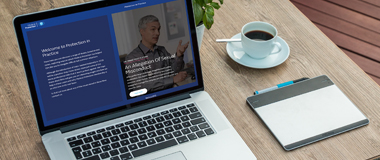Professional perspective: top tips when working with locum GPs
Post date: 16/12/2019 | Time to read article: 2 minsThe information within this article was correct at the time of publishing. Last updated 17/12/2019
The majority of GP practices will work with locums at some point. This could be planned in advance to cover annual leave, maternity, sabbaticals or when additional cover is needed to cover illness or gaps in clinical cover while recruiting or during busy periods.
Make it easy to get started
Ensure the computer is already switched on and logged in before they arrive. Have the locum GP added to the system so they can log into the clinical records system with their smartcard, or have a unique login printed and ready for them to use. And don’t forget to give them login information for additional software you use, such as DocMan.
When these things are not ready, and if nobody is available to sort it out quickly, it can add extra stress for the doctor and lead to starting clinic late, which may also upset patients.
Create a concise locum pack
Ideally this should be a few pages long, with key information covering the essentials to make the session run smoothly (rather than a huge folder full of documents and policies that won’t be read). Things to include are anything specific to the practice, such as:
- Contact number for reception/practice manager.
- Contact number for hospital switchboard or admissions line.
- Information on getting urgent assistance, eg a panic button/emergency call system.
- Location of emergency drugs trolley/defibrillator/oxygen and codes required to access them if kept in a locked room.
- Location of any specific forms (eg some areas have custom two-week-wait referral forms).
- How to order investigations – bloods, radiology etc (some practices have electronic forms while others still use paper forms).
- Location of bathrooms/kitchen/tea or coffee making facilities and keycodes to access staff areas if needed.
- Details of how referrals are handled at your practice – eg are referrals to be dictated? Are they generated by secretaries from the detailed consultation note? Do doctors write referrals themselves? Do patients need to book their appointments using the NHS e-referral service?
- Prescriptions – do you use electronic prescribing or paper scripts?
- Sick notes – how to access electronic Med3 forms and the location of paper Med3 forms.
- An intranet link to access more detailed notes and local policies that may not be required as often, with login details if required.
Stock up the consulting room
Having to contact the reception team during clinic to ask for FP10 papers for the printer, urine dipsticks or gloves adds delay to the consultation, especially as the reception team are usually busy dealing with calls and patient queries. The regular team will know where these things are kept but, as a locum, small things like this can add several minutes to a consultation.
Small things make a big difference if you want doctors to return
Most things that make me want to take additional bookings at a practice as a locum are small but can make a real difference. They include:
- Clear information before the session about parking.
- Feeling welcomed – a practice ready for me with logins and a room ready to go, the session setup with my name (rather than ‘locum GP’) and being given both a clinical and administrative contact for any queries.
- Regular doctors at the practice coming to introduce themselves and having a quick chat at the end of clinic (often only for a couple of minutes) – I appreciate this is not always possible.
- Being offered a drink (either at the start of surgery or mid-surgery).
Locum GPs are an important and significant proportion of the GP workforce, and most practices will benefit from locum GP cover at some point. Establishing a good working relationship will help both the practice and the locum GP to have a better experience and ultimately help to provide appropriate clinical cover for our patients.


